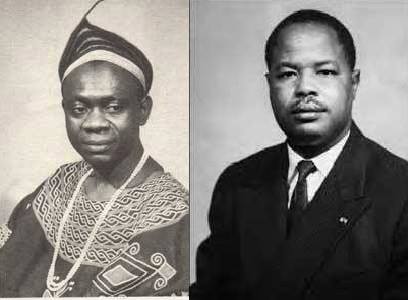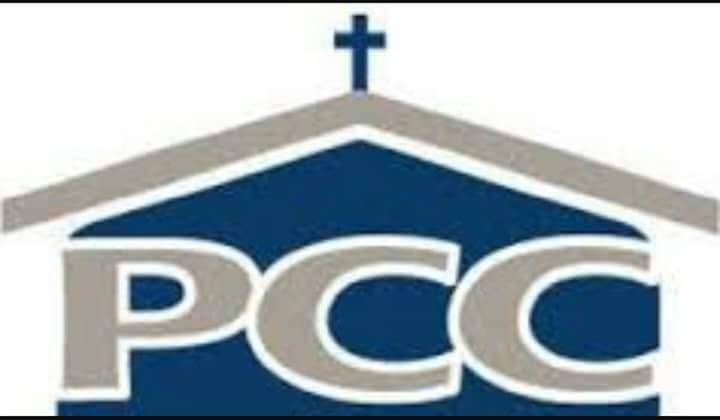Cameroon: The Anglophone problem as I see it
Much has been written and said about the Southern Cameroons problem in Cameroon. Proponents of the Southern Cameroons problem hold steadfast to the argument that Southern Cameroons lack a constitutional status and are therefore taken for a ride. On the other hand, opponents of the Southern Cameroons problem believe, Southern Cameroons enjoy the same status with francophones. Some others believe that over the years, Southern Cameroons have received preferential treatment from the authorities. It suffices to throw more light on the issue.
Most often, those who delve into arguments for or against the existence of the Anglophone problem fail to define who an Anglophone is. Failure to define this key term nurses confusion and difficulties in pushing an argument through. I have also observed that most proponents and opponents base their arguments on other peoples arguments propagated through social media and televised debates. Though these could be sources of information for verification and learning, some in-depth reflection is mandatory to aptly understand the Southern Cameroons problem.
That said, before I delve into some substance, it is important to know whom an Anglophone is. I will look at the notion of an anglophone from a cultural perspective. Basically, an Anglophone is an English speaker. By this token, all those who speak the English language are considered anglophone. However, understanding the concept and use of language clarifies doubts as to notion of an anglophone. Language is the bond that unites a given society because language enables interactions in society facilitating communication, business, worship, administration, administration, politics etc. According to Tatjana Ponorac, there is an unequivocal tendency of identifying language and culture.
In order to identify culturing of language, one often encounters expressions such as: “language and culture are inseparable”, “language and culture are intimately connected”, “language is culture and culture is language.” Language reflects and conveys culture and cultural connections. This short extract demonstrates that language and culture are inseparable. Basing on this, it is convenient to state that an anglophone is he who speaks English and practices a particular culture unique to English practices. Anglophones in present day Cameroon are descendants of the regions known as North West and South West. Culture is transmitted through diverse methods including family set up.
Now, the constitution recognizes both English and French as the official languages of Cameroon. It will be premature and absurd to limit the understanding of official languages on linguistic lines. First, Cameroon’s history instructs us that both languages are colonial legacies. French was inherited from France and English from the United Kingdom during colonial days. Colonial administrations had their beliefs, laws, educational systems, management systems; administration, political setups etc. I agree with Hantrais’ (1989) idea that ‘culture is the beliefs and practices governing the life of a society for which a particular language is the vehicle of expression’. Adopting English and French as the official languages of Cameroon translates to accepting the beliefs and practices and noting that these beliefs and practices are only communicated through language. If follows that English is only a vehicle through which the practice of common law and the anglo-saxon system of education are communicated.
The fundamental or foundation of a cultural system is not in the language but in the practices. Before dismissing the common law or the Anglo-Saxon system of education as a threat to national unity and stability, it suffices to understand that language in itself is empty. Adopting English as one of the official languages of Cameroon was adopting the beliefs and practices of the Southern Cameroon culture specifically, common law and Anglo-Saxon education because language only transmits or communicates something intangible.
Per the historical introduction above, Cameroon as a nation was constituted on 1st October 1961 as a federal state. Though some argue there was no treaty formalizing this union as mandated by international law. Southern Cameroons was a British protectorate administered under anglosaxon culture, practiced the common law and promoted the anglosaxon system of education. Whereas, la Republique du Cameroun (Francophone Cameroun) was a French protectorate administered under French culture, practiced Napoleonic laws and a French-type system of education. Language is therefore, an element of these heritages (culture) acquired from colonial masters. It is therefore manifestly impossible to separate culture from language, law from education and administration from politics. The term Southern Cameroons shall be used in this article.
While some opponents to the Southern Cameroons problem argue that authorities have reserved preferential treatment to Southern Cameroonians, this argument falls through the cracks. First, history dictates that Southern Cameroons voted to join and form a country in a two state federation with equal status thereby having a constitutional status and identity. Since the abrogation of the federal system of government in 1972, Southern Cameroons have lost the constitutional status and identity they previously bargained for and enjoyed between 1961 and 1972. All arguments on the supposed preferential treatment of Southern Cameroonians lack merit simply because Southern Cameroons lack constitutional authority in the decision-making machinery of this country.
A Southern Cameroonian handpicked by the francophone majority knows he serves the interest of the francophone majority and not the interest of the minority Southern Cameroons. In the years long gone, Southern Cameroons had an assembly as of right, Southern Cameroonian ministers were vetted before confirmed for office in Yaoundé through the Southern Cameroons parliament.
Some other opponents to the Southern Cameroons problem advocate for a policy defining a Cameroonian identity. Ideally, this is a wonderful idea but practically, the idea begs for substance. Laws and policies are reformed to address a societal ill and improve the wellbeing of the community. Seriously speaking, the proponents of the Cameroonian identity still need to educate Southern Cameroonians on the ills that befell the Cameroonian society due to the duality in culture. Granted these are foreign cultures (Anglo-Saxon and French), we cannot delete them from present Cameroon because Cameroon was born through the merging of the two cultures. Since the introduction of the unitary state in 1972, Cameroon has regressed year after year. The difficulty in defining strengths of the new Cameroonian identity has left their advocacy lame. National unity and integration is an ideal every nation should strive to attain.
However, national unity does not translate into deleting one cultural heritage to the advantage of another. Similarly, national unity is feasible and very strong when diversity is upheld through the identification and respect of the two distinct cultures. The feeling of subjugation by the minority is a given when the majority attempts harmonizing the both cultures without due process and consultation. Building a unique Cameroonian culture could make more sense if Southern Cameroonians freely choose representatives to negotiate with their counterparts from French Cameroon. Come to think Cameroon ratified the OHADA treaty whereas its unique language was French per article 42 and of the treaty. This stands in stark contrast to the constitutional provision that English and French are the official languages of the Cameroon with equal status. One wonders whether violating the constitution to the credit of one cultural system is building a Cameroonian identity or imposing one culture over another. Justice Ayah Paul corroborated this when he ruled a treaty which is basically French suffers from self-exclusion from the English speaking provinces of Cameroon.
The current strife in the Southern Cameroons is testament to the difficulty and impracticable nature of the unitary state as it is. Lawyers and teachers have grounded their tools because they believe the building of a Cameroonian culture has led to wanton injustice in the Southern Cameroons part of the country because civil law trained judges and prosecutors appointed to the common law jurisdiction do not master the language and practice of common law. Also, it is believed the training and education of Cameroonian youth is becoming irrational with the appointment and placement of teachers who do not master the language and practice of the Anglo-Saxon system of education. Education is a subset of culture and therefore, culture strongly influences how an individual approaches education, and a society’s culture determines how that society educates its citizens.
As I see it, respecting the cultural differences especially in the legal, education and administrative/political dispensations is critical for a peaceful, just and sustainable future. To clearly demonstrate the anglophone problem, some have advocated for the term southern Cameroons problem. I tend to lean more towards this definition because it situates the problem within a historical purview cutting across the legal, administrative and educational aspects of the inherited culture. A historical perspective leads us to a sustainable solution through the identification of divergence and respect of this divergence giving birth to a one nation and two systems concept. Southern Cameroons, therefore, is that entity that joined the Cameroon Republic in 1961 through a referendum. An Anglophone therefore, is someone who originates from the Northwest and South West regions, speaks the English language and practices the culture inherited from colonial administration. Such that people who share the second and third are not considered by this understanding as Anglophones. Suffice it therefore to say constitutional status recognizing the two entities will facilitate sustainability.
By Mr. Ngalim Bernard
For BaretaNews





